Tayarisha Poe is a West Philadelphia-bred multimedia impresario who works in film, photography, and writes short stories. Her complex portraits of young people of color intensely showcases her creativity with deeply felt and vividly rendered works filling in those “absent” spots missing in mainstream media. Poe’s debut feature film, Selah and The Spades, began as an online series of photographs, short films, prose, and web design, telling the story of a charismatic Black teenager in a fictional Pennsylvania town.
From there, Selah grew across social media, spreading rapidly on platforms such as Facebook, Twitter, and Tumblr, earning healthy praise. Poe was chosen by Filmmaker Magazine in 2015 as one of its “25 New Faces of Independent Film,” and in the following year she received the Sundance Institute’s Knight Foundation Fellowship. Add to the mix that the Swarthmore College graduate is a 2017 Pew Fellow and was selected in that same year for the Sundance Screenwriters and Directors Lab, and you have the makings of a phenomenal new presence in Hollywood.
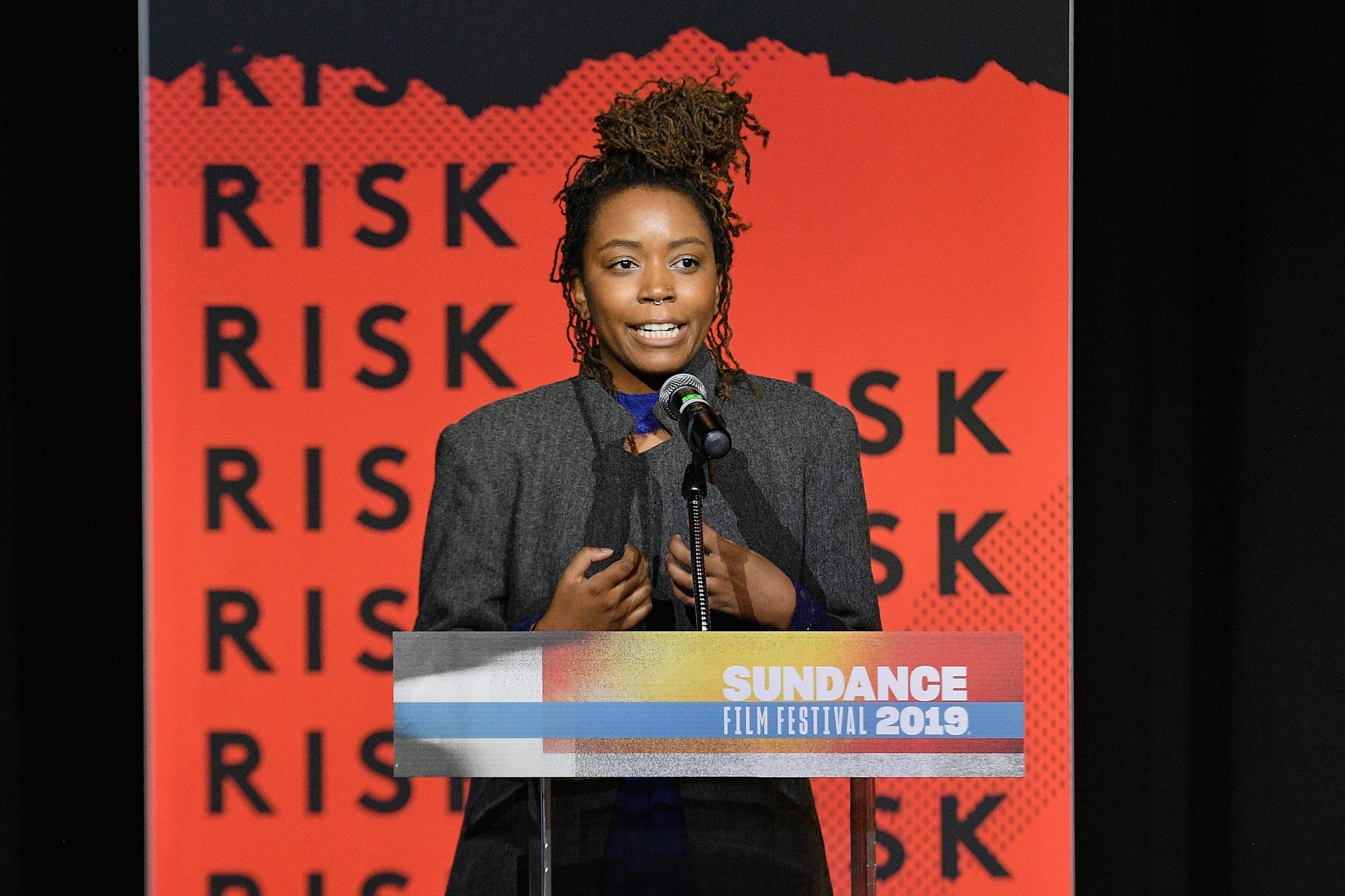
With an Art and Change grant from the Leeway Foundation, Poe developed Selah into her first feature-length film, which is streaming now on Amazon Prime Video, with further development into an original series. Starring Lovie Simone (Greenleaf) as Selah Summers, the all-powerful head of The Spades who walks a fine line between being feared and loved, this project represents a new guard in an industry increasingly looking for stories about Black Millennials.
Poe’s creativity and storytelling has proved that there’s not one way to live Black. ESSENCE was fortunate to speak with the indie filmmaker about what creative freedom means to her, how Rihanna was a heavy visual influence on Selah, why Lovie Simone has a role in any film she makes, and how Jharrel Jerome served as a big brother to his co-stars in a never-before-told story.
ESSENCE: When Selah meets Paloma in the first act, she decides to take her under her wing as a mentor and train her in a way to become her successor, right? In your own developing career, who was a person like that for you?
Tayarisha Poe: [Laughs] A mentor in a positive way?
ESSENCE: Yes, yes.
Tayarisha Poe: Yeah, I mean, I’ve had several different mentors over the years. I’d say Terence Nance (Random Acts of Flyness) is definitely somebody like that for me. He is just somebody who has consistently been down to talk about ideas and also gives me advice. He is someone who really early on championed my work in a public way. There’s plenty of people who I wouldn’t have met if Terence wasn’t loud about my work when I graduated college.
I think he’s a big one. Kasi Lemmons (Harriett) is another person who is important to me as a mentor. I met her at the Sundance Screenwriting Labs and she is someone whose work and voice I’ve always respected and loved. She has given me countless advice about work and life that is priceless. So, for me, I would say that Kasi and Terence are two of my biggest mentors in my life. Them and also Anna Rose Holmer (The Fits), another filmmaker, is a mentor like Kasi and Terence for me. I feel very supported by them. There is this community that I am grateful to have found in the world of film.
ESSENCE: Speaking of community, when Lovie delivers that “When You’re 17” monologue that was a moment that anyone who has been that age could relate to. As a first time writer-director of a feature-length film, can you speak to how you balanced being in control of this project versus dealing with others to get the film to Sundance and eventually with a distributor like Amazon?
Tayarisha Poe: From the beginning of this process in making a feature, I didn’t have to go it alone, and I think I’m a little bit lucky in that. Our lead producer, Lauren McBride, we went to college together and took a few film classes, too. She was one of the first people to believe in what I was doing with Selah and The Spades. When she saw that, she was just enthusiastic about everything! ‘What are your plans for the next thing?’ ‘What are you going to do next?’ ‘How can I help?’ were things that she would say when reaching out to me.
I haven’t had to do it alone and, for that, I am thankful. Lauren has always been my ride-or-die, helping me to figure out stuff, while at the same time, learning how to be a producer. We were able to help each other and I think that was absolutely invaluable. The Sundance Labs really helped, too. It instilled in me this feeling that while everybody has good ideas, only you really know what is the right thing for the story that you’re trying to write. The Sundance Labs really encourage you to hear all these ideas and then listen to your gut. It was that sort of experimentation coupled with the time and space to work that allowed me to follow my gut and see what it was telling me.
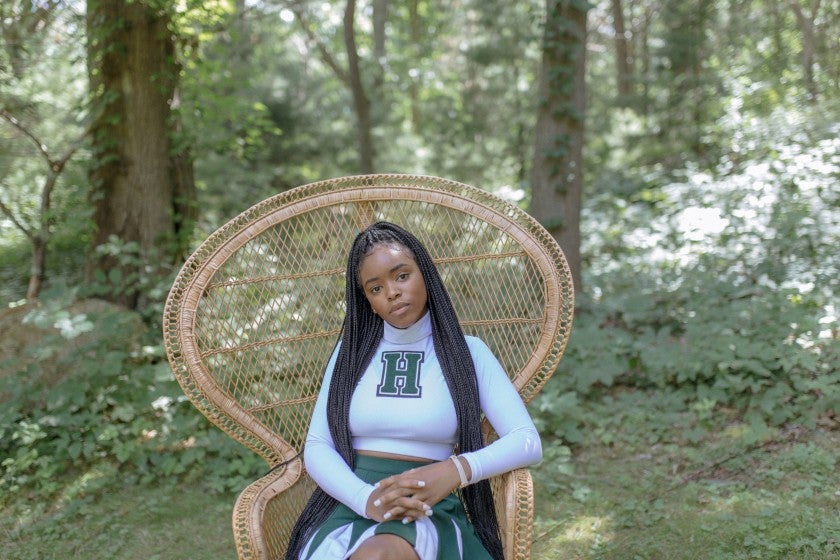
I know it seems crazy, but you have to believe yourself when you can look somebody in the eye who has money to fund your project and say, ‘I know it’s all in my head, but trust me, I am correct right now.’ You have to believe yourself when you say that because that’ll make other people believe you.
ESSENCE: This film certainly made a believer out of me! Without spoiling anything for those who have yet to see Selah and The Spades, can you talk about how intoxicating power can be for a teenage girl who acutely feels how she is perceived by the larger world?
Tayarisha Poe: Yeah, totally. Any woman was, at one point, a girl who has this feeling of what is right for you as a person. Being a young girl is really about navigating what you’re supposed to be for other people while remaining true to yourself. Others would say that you’re not supposed to be “mean” or you’re not supposed to do this or do that, and usually it all boils down to what people will think of you. So, I feel like women and young girls are often forced into thinking about what other people are going to think about them as opposed to thinking about how we will think about ourselves.
Women and young girls are often forced into thinking about what other people are going to think about them as opposed to thinking about how we will think about ourselves.
That’s really what the movie strives to do. To let a girl like Selah have time to think about herself, for herself, and to think about her actions and how they change the way she sees herself was important to show. It’s exhausting to constantly have to worry about what other people think about you, but I think a lot of women know what that feels like—especially Black women to be quite honest. From the way that we dress to the way we wear our hair that day, just knowing that those small things will greatly change how people perceive you can be nerve-wracking. Selah embodies breaking of those perceptions and it also stems from my own life.
ESSENCE: You also went to boarding school, correct? Some of the themes in Selah and The Spades also cross over with your real life, but, as the writer, were there any specific moments that happened in the film that tie into your own experiences directly.
Tayarisha Poe: I mean, Selah is all totally fiction. 100% fiction, but at the same time, there are little bits of conversation and little life moments from my own experiences that I can’t help but write into my fiction. This is the only life I’ve lived, so even if this were a story about an 80-year-old woman who, I don’t know, climbed mountains for a living, I would still find ways to work in my own history because that’s how I like to write.
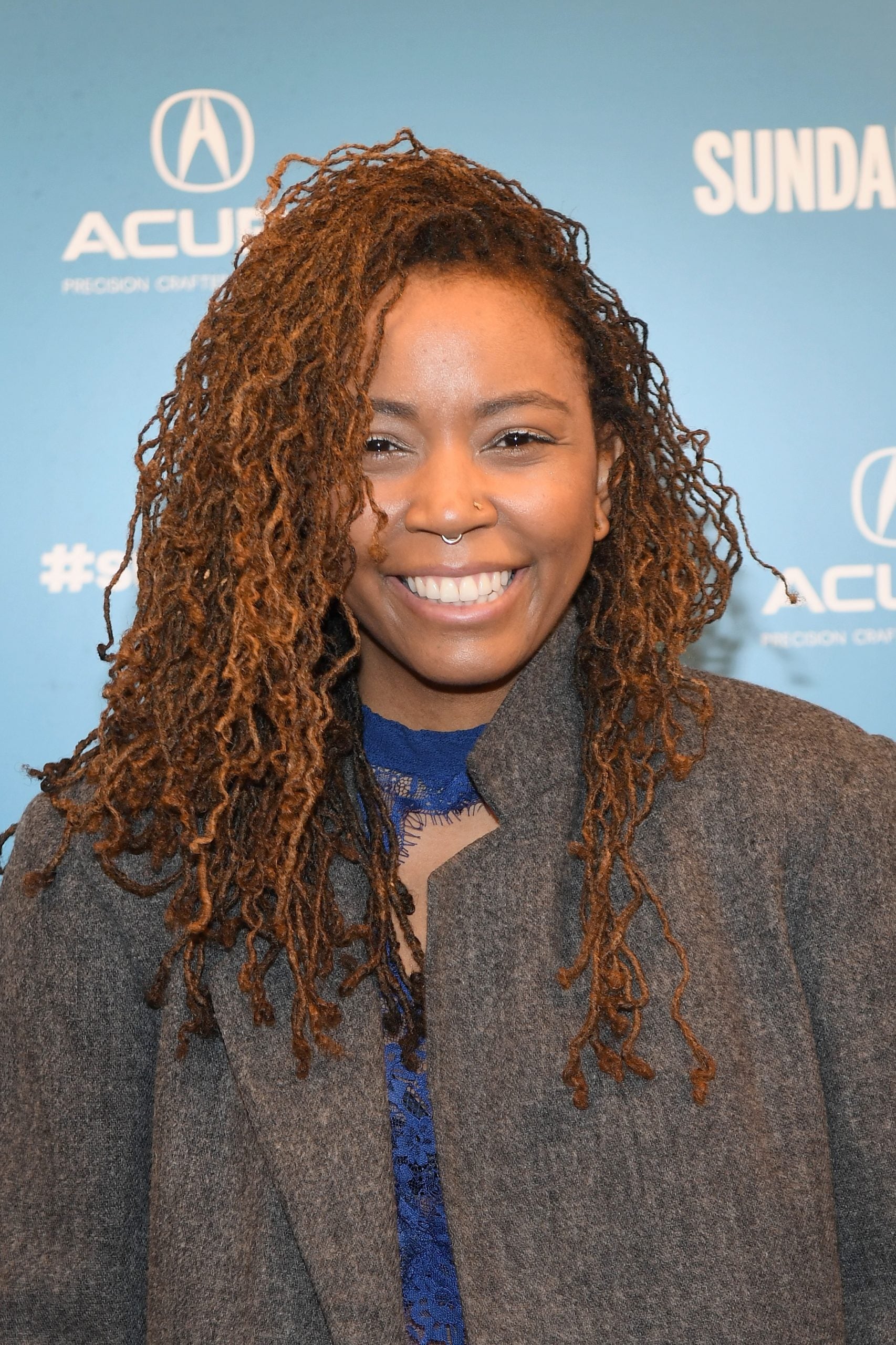
With Selah and The Spades in particular, the part where real life and fiction meet is when I didn’t want to go to this one particular college when I was in high school. My older brother had gone and my mom really liked it, too. She wanted me to go too and I really didn’t want to do it. I was determined not to go to this college.
She sits me down one day and has the chat similar to Gina Torres does with Lovie in that kitchen scene. She was like, ‘I am your mother, I know better than you right now.’ I refused to believe her [laughs], but obviously I went to that college because she is my mom and she was the one paying.
I didn’t really have a choice. In retrospect, she was right [laughs]. I went to the right place and I’m glad that I did, but there’s so many things in my teenage years that happened that I am so grateful to have had a mom who was pretty chill and just wanted me to be the best version of myself. She let me make a lot of mistakes and some of those mistakes are in the movie. She didn’t stop me from making mistakes just because she knew that she could, she would step in when she really felt like she should step in.
ESSENCE: Could you share with us some never-before-told stories from Selah and The Spades?
Tayarisha Poe: There’s a ton [laughs]. None of the stories have really been told yet. In the third act, the scene with the prom in the forest was such a nightmare. [Laughs] That was fun, but an absolute nightmare. At the end of that night, we finished shooting at five in the morning, and I remember being in the car going back to my house and crying my eyes out because it was the worst day of production. We didn’t get anything that we could use. Everything was garbage. I remember everybody feeling so defeated because halfway through the night shoot our sound mixers — or something like that — broke and we couldn’t record audio.
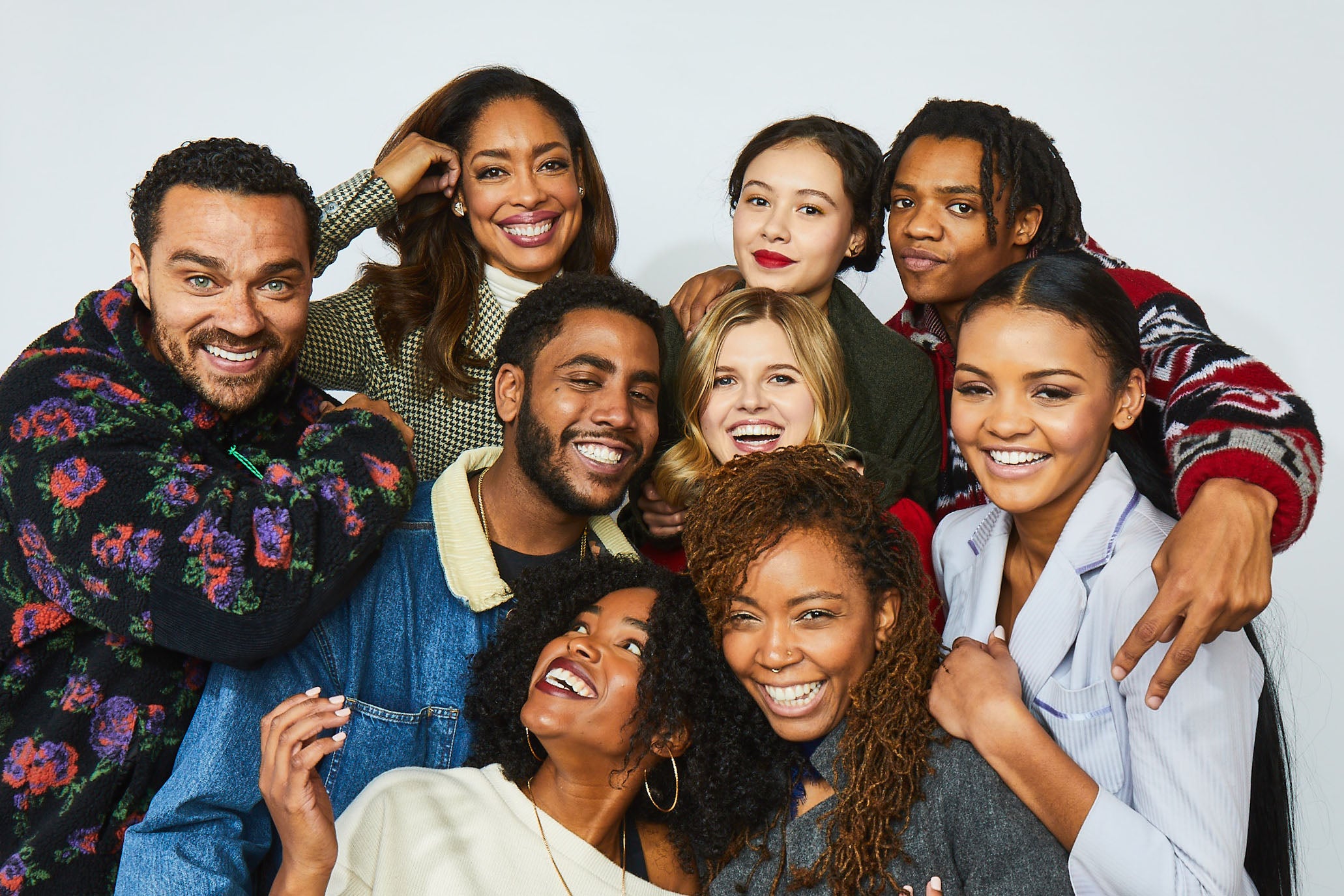
We had to hook up the boom mic directly to the zoom mic, and that was the only way you could record sound. Also, there were so many freaking mosquitoes, everyone was getting bit and then our sound broke. We were shooting this really emotional scene where we had this stunt punch with all these extras for the prom involved, and everyone was absolutely miserable. But Jharrel [Jerome], Lovie, and Celeste [Last] were just trying to conserve their energy despite being a little bit frustrated. Not anywhere near as frustrated as I would’ve expected any person to be, but they were definitely keeping their cool.
I came over to them before we were ready to start filming again, just trying to get back into it, and it was so fascinating to watch them hype each other up. Jharrel was like their older brother, encouraging them with their energy, and playing up to being team captain in that moment for them. It was a really sweet moment because the connection between those three characters, especially Lovie and Celeste, really that main trio, was sincerely genuine. They were just so together, there for each other, and so loving and caring—it was just like they were brothers and sisters. That is one of my favorite stores because I felt like they had to bring it and they did. I am so proud of them for that because that was such a hard night.
ESSENCE: Watching that scene unfold and you could tell that there were so many different ways that it could’ve gone left. Thankfully that wasn’t the case and its success shows as Sundance wrote about the film’s lead, Lovie Simone. “Her performance beautifully embodies both publicly impeccable command and the internal fears and uncertainty that drives it,” the piece reads. What are your thoughts about Lovie going into filming and her trajectory as a budding leading actress?
Tayarisha Poe: Oh, my God. I don’t say this lightly but Lovie is going to be one everyone’s minds for the rest of her life. She is absolutely phenomenal. When she first came in for <em>Selah and The Spades</em>, she auditioned for the role of Selah, and I thought she was too young. I so wanted her to be a part of this project, so I was like f**k it, let’s put her as Paloma. She just needed to be a part of this trio, needed to be in this film. Things shifted with the casting and I had an opportunity to bring her up as Selah. It was like the universe was course-correcting me from making a mistake and helped me out to make the right decision.
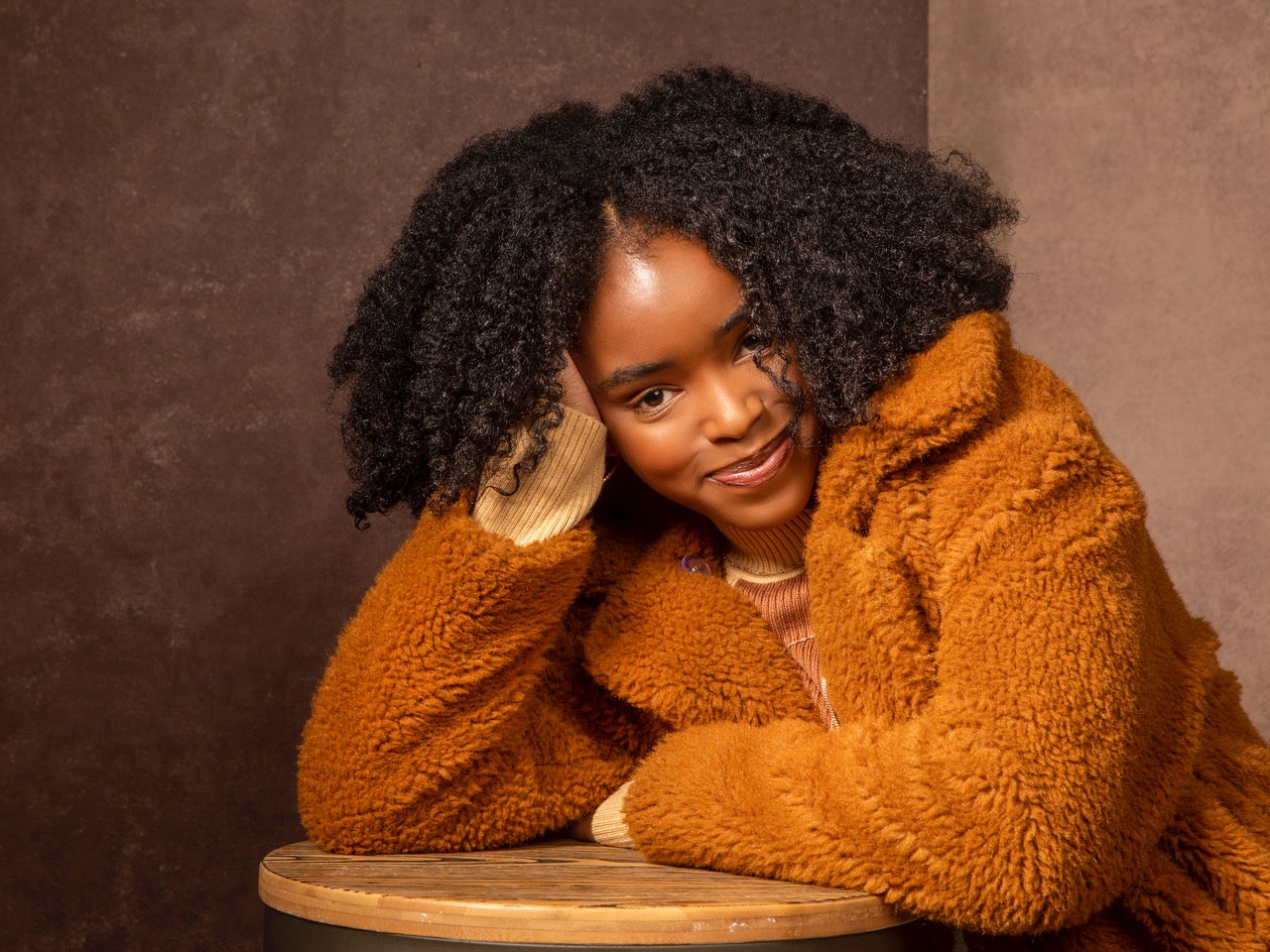
Lovie was just amazing as Selah! She has something that is indescribable. When you watch her on tape or see her perform, she just has that “it” factor and she has it in spades. She genuinely has talent glowing out of her eyeballs. That’s how intense it is. It is incredibly fascinating to watch her act as Selah, as this ruthless girl who is willing to do whatever-it-takes to keep hold of her power. To see her be that character and then as soon as you call cut, she drops out of it and returns to Lovie is beautiful. She is a big ball of energy, who is hilarious and makes a lot of jokes. It is within that where you have to remind yourself that she’s not Selah, but an amazing actor.
I’m never going to stop working with her. She has a part in everything that I do from now on because she’s absolutely phenomenal. One day she’ll get into writing because she brings so much life to these characters and to the story that you can tell she is in love with the process of storytelling. I love that kid!
ESSENCE: You brought up the ruthlessness of the character, which brings me to the “Scorpion and the Frog” fable within the film. It was a very choice allegory to use to describe Selah’s relationship with others. While the fable leaves the moral of the story open-ended, would you say the same can be said for the film? If so, how do you feel that that leaves the door open to the developing Amazon series?
Tayarisha Poe: It is definitely meant to be open-ended. In writing the story, it was really important for me to make sure that we don’t judge Selah as being a good or bad person. Really, nobody in the story should be judged, to be frank. The actions can be judged but not the person. That was the focus with Selah and The Spades and that’s why I like that fable. It is a question of: is this scorpion a thing that does these things or is this just a thing that a scorpion has done?
I love that open-endedness in terms of the morality of the story. I like when any story starts in the middle of things and then leaves us in the middle of something else. To feel like I am arriving to a world and to these characters as they are in the midst of their lives is something intriguing to me. After watching a portion of their lives, they feel like they’ll continue living on and I just won’t be there to see it. This is why in the film I start things off the way I do. In terms of the Amazon series, I don’t know how much I can say, but this film does leave things open for us to explore in the series. We don’t necessarily have to say goodbye to these characters yet.
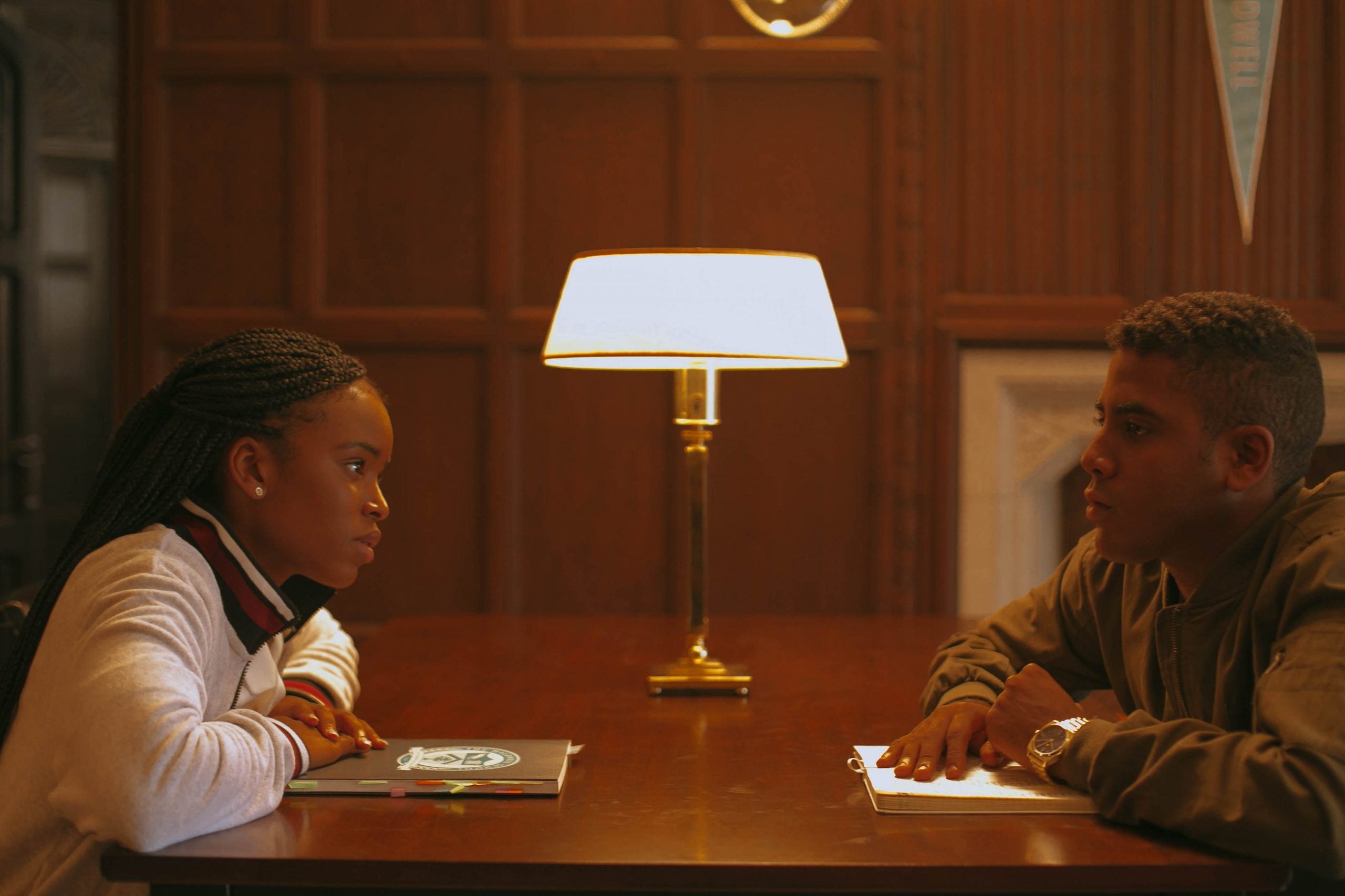
ESSENCE: One of the things I noticed that Selah and The Spades needed was the visual stylings of Jomo Fray. You two came up with some solid and strong tones, but I wanted to ask if there were any hidden references or influences that can be found in the film if people knew where to look?
Tayarisha Poe: I absolutely love Jomo. He is very patient and he doesn’t need to make a “good looking image”. That’s not what he is here for. He’s here to make the right images for this story, so working with him was a blessing because he was able to help the story in the right way. Our biggest influence was a visual image or someone in that space per se. Rihanna was a huge influence to the film. Jomo and I talked about Anti a lot when we made this movie and we talked about this idea of being a savage in Rihanna’s way of being a savage.
To me at least, Anti is really about being a woman, which sounds so objectively obvious, but it is about being a woman. It is about having this power and having control over others because of your ability to be a savage, to make people feel things through your own ability. Through that savagery from Rihanna, we leaned into constructing the film around brutalist architecture. When Jomo and I put those two ideas together, it formed a “savage formalism” that served as our visual principle in the film, which was very, very influenced by Rihanna.
ESSENCE: Now with Riri seeming like she’s going to come with a new project, finally, maybe she will read this piece and love how her influence continues to carry over. Last question, Tayarisha. In an interview you did with Filmmaker Magazine, you said that you “make stories to chase freedom” and I wanted you to expand on that a bit. What is that freedom for you? Is it something that means speaking freely or is it something more visceral?
Tayarisha Poe: That’s a really good question. With the way the world is right now, it is cool that you bring that up now. It feels like I’ve been asking myself what is my role in the hypothetical or actual revolution that may be coming? What can I actually add? What can I give to the world that is not something that I do to make money? The more I thought about it, the more I realize that it relates to why I started writing in the first place: to tell a story. What I am trying to do with Selah, what I am trying to do with this new stuff I’m writing, is just writing stories so that they exist.
It sounds so simplistic, but it’s true. I aim to tell stories so that this vision of a world rarely seen or experienced exists in the future. For me, that is what freedom means. It is the ability to tell your own story and decide what about you or others last. It is a lot of pressure to place on yourself, but for me, it boils down to somebody has got to tell the story, so why not me? I want more people to tell their own story so that our fictional worlds look more like the real one we live in. I don’t want to exist in a future where we’re only telling this one-sided version of what the world used to be like.
